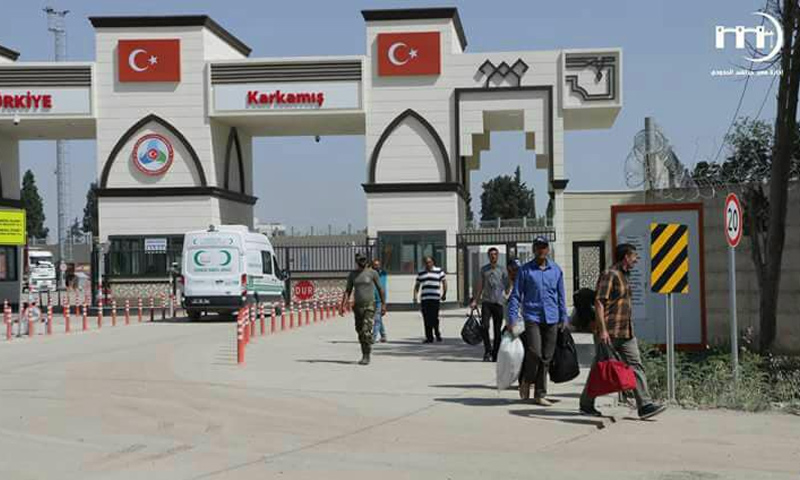On June 20, 2018, the Chamber of Commerce in the Turkish city of Gaziantep has announced the reactivation of the Jarabulus border crossing, shared between the Turkish territory and the Syrian territory which the Turkey -backed “Free Army” controls.
The decision allows both Syrian and Turkish merchants to move in and out of the “Euphrates Shield” area, where several vital cities are located, including Jarabulus, al-Bab and Azaz.
- The merchant has the right into a pass, in case the Chamber of Commerce’s stated conditions are met:
- The merchant must be a member of the chamber of commerce or industry.
- The merchant must be a holder of the Turkish Kimlik (the national Turkish number).
A customs declaration which proves that the merchant has exported goods to Syria with the value of five thousand dollars or more in the past year and a half.
Knowing that, if the governor of Gaziantep consents, the merchants will be offered a month-long permit to enter and exit the area.
The “Euphrates Shield” area, Northern Syria, extends along the border line which separates Syria from Turkey with a space of about 2055 square kilometers, to which the Euphrates river forms the eastern natural border, thus enriching it with drinking water and empowering its agriculture, turning it into a source for olive, cotton and wheat.
This area has, in the past a few years, suffered the repercussions of the war in Syria and was controlled by different militias through these years, such as the “Kurdish Militias” and the “Islamic State” till the Turkey-backed “Syrian Free Army” managed to liberate it from the latter and succeeded in spreading security there.
This battle destroyed the area’s infrastructure, due to which many skilled people choose to leave it and migrate to Turkey and Europe; it also suffered downturn as a result of the siege that Assad’s forces impose on its southern part and the lack of sea crossings, in addition to the minimizing commercial activity with the only neighbor state, Turkey.
The reactivation of the Jarabulus crossing came as a solution for the major part of the economic and social problems suffered by the area, since allowing the Syrian and Turkish merchants entry to the area would help in the reenergization of the commercial movement and admitting a fresh capital, which, thus, raises the exchanged fiscal mass and accordingly decreases the downturn.
According to a survey conducted by the “Syrian Economic Forum” covering the merchants who are registered in the chambers of commerce and industry in Gaziantep, many Syrian industrialists prefer to establish factories in this area to utilize the cheap labor force in comparison with Turkey, which will end up with decreasing the unemployment ratios and encourage Syrians based in Turkey to return because the area is rich with job opportunities and enjoys a less costly life style than that of Turkey. This industrial step will also put a limit to the labor force leakage, fleeing the area to other Syrian parts or to neighboring countries.
The “Euphrates Shield” area, nonetheless, is in need for more than the activation of a border crossing; this proceeding must be part of a strategic plan that aim at achieving social and economic development there. The plan shall focus on the organization of the local councils, gendarmerie and the police, as well as the evaluation of the local economy as to examine its points of strength and shortcomings, after which an overall strategic study is set up to realize the target social and economic development. This should be followed by the on-ground implementation phase, defining the entities responsible for the implementation and follow up as to guarantee the highest quality. The valuation process, finally, comes as to measure the success of the plan in relation to achieving its goals.

